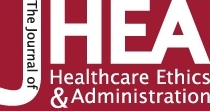Back Issue: Vol.9 No.1 (Spring 2023)
ISSN 2474-2309
Research Ethics
- John J. LoCurto, JD
Address correspondence to: John J. LoCurto, J.D. Assistant Professor of Medical Jurisprudence and Health Policy. University of the Incarnate Word School of Osteopathic Medicine. San Antonio. Texas. USA. Phone: (210) 619-7054. Email: locurto@uiwtx.edu
Pages: 1-24
Debates about health care often emphasize distributive justice. How should society allocate finite resources? Who will get access to them, who will not? Is the allocation fair? Who decides and by what standard? Answers to these questions rarely consider health care fraud, waste, and abuse. This is a material omission. Fraud alone costs the health care system billions of dollars annually, dissipating limited funds and degrading quality of care. This paper considers how fraud, waste, and abuse occur in Medicare Part C – better known as Medicare Advantage – an increasingly popular coverage option. Medicare Advantage experiences unique challenges that undermine the program and squander the public’s investment in it. Only by accounting for these programmatic vulnerabilities can we then go on to assess whether Medicare Advantage is an effective, cost-efficient, and equitable mechanism for delivering health insurance coverage.
Case studies
- Charles Owusu-Aduomi Botchwey
Address correspondence to: Charles Owusu-Aduomi Botchwey. University of Education, Winneba. Faculty of Science Education. Department of Health Adm. & Education. Winneba-Central Region. Post Office Box 25. Phone: +233598014015. Email: chaboat08@yahoo.com
Pages: 25-33
Background: Because healthcare professionals are well versed in patients’ fundamental rights and obligations, people are growing more worried about their ethical behavior. The accusations regarding unethical behavior and the rise in legal action against healthcare providers frequently reflect this. Threats and intimidation directed at healthcare workers have also increased recently.
Objectives: The purpose of the study was to assess the knowledge and practice of healthcare ethics among healthcare professionals in Winneba Municipal Hospital and Trauma and Specialist Hospital in Effutu Municipality in the Central Region of Ghana.
Methods: The study used a descriptive cross-sectional design and a qualitative research approach. The research design used offered a deeper understanding of the experiences, phenomena, and settings under study while addressing the “what,” “how,” and “why” of the research questions. The interpretive approach was chosen as the research’s epistemological stance because it emphasised how unique humans are from the material world and how research methodologies should reflect this distinction.
Results: This study identified ethical issues bordering on areas of communication, decision-making, confidentiality, and professional duty as key themes for ethical reflection. It explored the experiences of healthcare professions in different fields of practice within the clinical context. The study also identified strategies for improving knowledge and adherence to ethical codes regarding the profession, which are education, routine orientation, workshops and retraining programmes.
Conclusion: Despite the commendable efforts of health professionals in adhering to healthcare ethics, policy-makers in the healthcare arena of Ghana such as the Ministry of Health, Ghana Health Service and the Association of Health Administration and Support Services should gear health policy towards enhancing staff-patient relationship.
Keywords: Healthcare professionals, patients’ fundamental rights and obligations, unethical behaviour, ethical reflection, Ethical codes and Communication.
